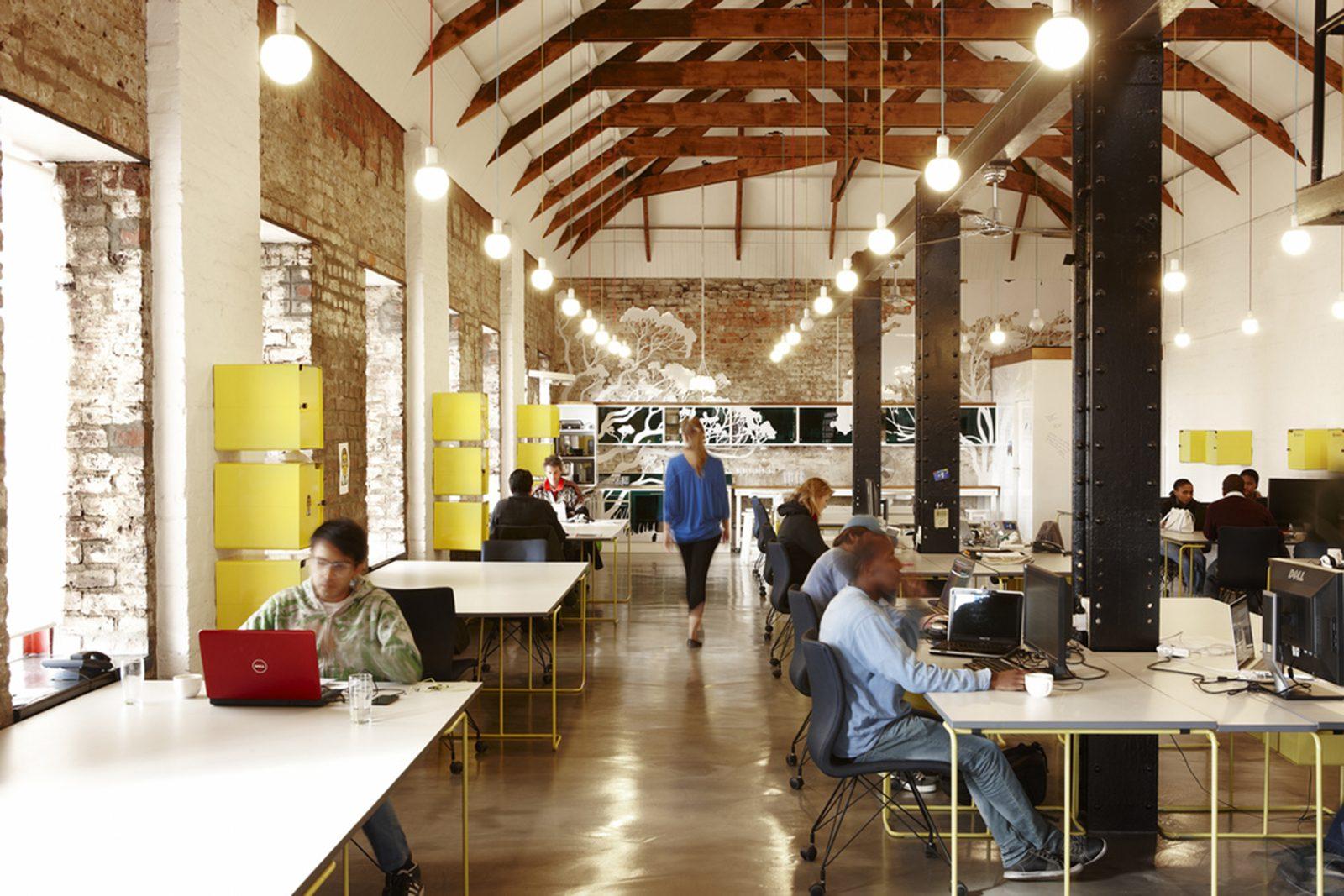The typical “millennial” office has been touted as being both a blessing and a curse to the professional environment. The lure of Google’s or Square’s offices, with ladder chutes and collaborative couch cubbies respectively, make some of us entering the job market drool, while others roll their eyes. Either way, the traditional idea of “office space” is changing.
As announced in a Boston Globe article, WeWork is continuing its crusade in Boston, planning on opening its fourth location early next year in Cambridge. WeWork, like the Googles and Squares of the world, is seeking to transform what it means to go into an office. The company has taken advantage of the “sharing” mentality and applied it to office space, by leasing desks and workspaces to individuals and corporations alike. In a WBUR article, the co-working locations have been highly successful in entrepreneurially spirited Boston. Joining WeWork is cove, Oficio and Workbar, with locations scattered elsewhere around the city, but offering the same basic elements of a co-working space.
The value of a co-working space is undeniable. They cater to different kinds of workers, providing an alternative to stuffy and conservative work spaces. They remove the cubicles and filing cabinets, replaced with long tables and endless coffee, and in turn, potential new ideas. However, it understood that they’re not for everyone.
On that note, co-working spaces are sometimes even eye-rolled by millennials. By removing oneself from a traditional office space, it is an escape but also a retreat to solitary existence. Gone are the casual questions and knocks on doors. They’re replaced by texts, pings and Slacks. In fact, in digital companies in particular, the roles of interns play out exclusively virtually for some. Many have never met their superiors or counterparts, or perhaps haven’t even spoken with them on the phone. This is perhaps more common with writing positions, where individual work is held above all else, but still strange.
Collaboration is undeniably most effective when done in person. The subtleties one detects in person hardly ever come across online, and if they do, they are often miscommunicated in some capacity. Personal connection is all forged when occupying a mutual space with your co-workers. It’s more than just a job, it’s a community, and WeWork and similar co-working spaces do eliminate this vital element.
Technology also plays a major role in stepping in for that authentic connection. If not actually present for employment, a constant digital connection is necessary. The “always on” mentality tethers employees to their devices, and this habit spills over into other realms of their life. Some could argue that this has already happened, but the constant connection merely enforces it.
However, for young people, the idea of a co-working space is a game-changer. For our generation, entrepreneurial ambition is highly valued, yet the logistics of actuating our ideas are sometimes less ambitious. A membership at cove or Oficio eliminates this worry and further investment in brick and mortar offices.
As young people, it can generally be said that we are social. A co-working space fosters that collaboration, but at a low cost. It also channels that socialization into networking opportunities that naturally present themselves when placing a group of professionals in a room together. Conversations will be initiated, ideas exchanged and connections made.
Another compelling argument for co-working spaces is the idea of an “ideal commute.” As explained in the WBUR article by Bill Jacobson, founder and CEO of Workbar, most workers do not want to remain isolated all day.
“The ideal commute is not zero. It’s about 10 minutes,” he said. “People want to get out of the house and be around other people.”
Certainly, co-working spaces are not perfect; but then again, a perfect workspace depends on an individual rather than the space itself. Think of studying in Boston University’s Mugar Memorial Library. Sometimes studying on the third floor is acceptable, surrounded by people chatting and exchanging ideas, feeding off of one another’s energy. Yet, other times, a corner on the sixth floor is necessary to just power through a workload in silence.
Office spaces are similar. Sometimes co-working is what you need. Other times a cubicle will do. Having the option to choose is what makes the change positive.






















































































































